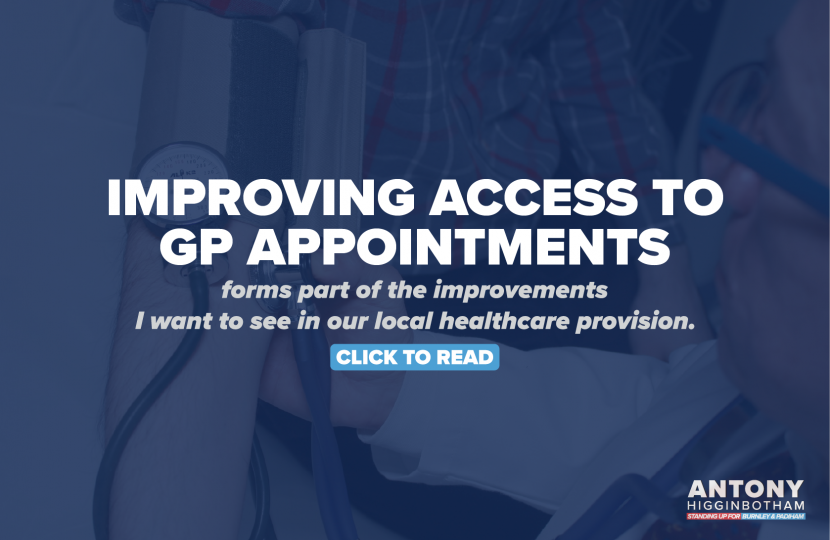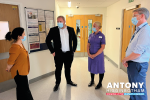
Today, the Government has published a new blueprint to help recover primary care services, which aims to improve access to care, better support patients to manage their own health, and modernise general practice for the future. The Primary Care Recovery Plan sets out actions that will mean patients across Burnley and Padiham will access faster care for their health needs from their local pharmacy and GP surgery.
As part of the plan, measures will be taken to tackle the 8am rush and invest in new technology for GPs, making it easier to get through and receive a response on the same day. The government will also introduce pharmacy first, investing millions to enable pharmacists to provide treatment for common conditions, such as ear pain, severe sore throat, skin infections, and urinary infections.
Bureaucracy will also be cut to free up GP time, with the aim of freeing up around £37,000 per practice, improving communication between GPs and hospitals, and reducing GPs' workload. Patients will also be able to self-refer for some services, including physiotherapy, hearing tests, and podiatry, without seeing their GP first.
The plan will deliver more appointments and more staff, ensuring that we have an extra 26,000 clinicians and 50 million extra appointments by March of next year. The NHS will more than double the number of people able to access blood pressure checks in their local pharmacy - 2.5 million, up from 900,000 carried out last year.
Commenting on the Primary Care Recovery Plan, Burnley and Padiham’s MP Antony Higginbotham said:
This plan provides much-needed support to health services within our area. Because wherever you live in Burnley and Padiham, having access to a face-to-face GP appointment is crucial. And forms part of the improvements I want to see in our local healthcare provision.
Getting a doctor’s appointment is an issue I’ve spoken with many residents about. And so, whilst experiences vary depending on the surgery your registered with, this issue is something I’ve raised multiple times in Parliament, both in public and privately with Ministers. And the Government are listening.
Increasing the numbers of clinicians, investing in new technology and cutting the bureaucracy to get more GP appointments is much needed. I’ll continue to play my part to ensure all of us have access to the care we need, when we need it.
The actions set out in the plan are expected to free up around 15 million GP appointments nationwide over the next two years for those who need them most. It will support primary care services to continue to adapt and innovate to meet patients' needs, with nine in ten people able to access their GP records, including test results, on the NHS App within the next year.


